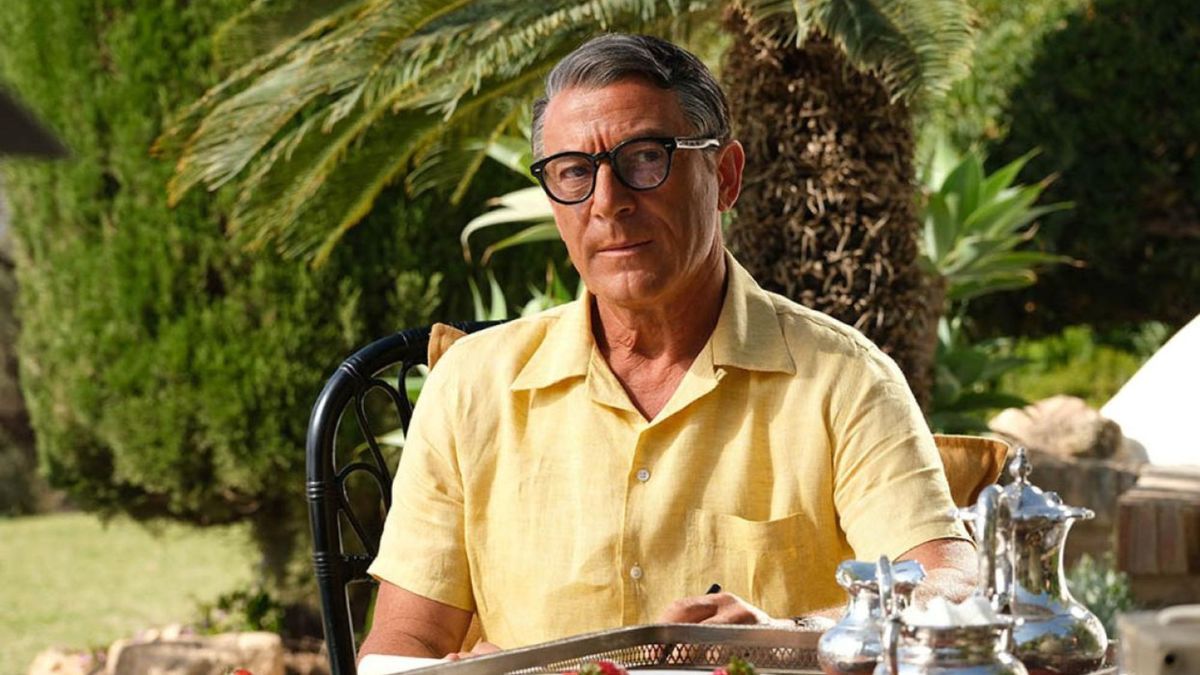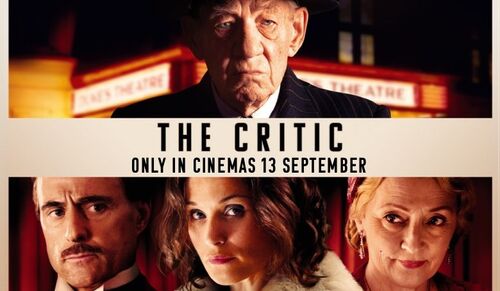
'Archie' Review
 When I saw the first released image of a completely unrecognizable Jason Isaacs as Cary Grant, I was immediately intrigued by the new four-part miniseries “Archie”, which debuts this Thursday December 7th on BritBox U.S.
When I saw the first released image of a completely unrecognizable Jason Isaacs as Cary Grant, I was immediately intrigued by the new four-part miniseries “Archie”, which debuts this Thursday December 7th on BritBox U.S.
Grant was a Hollywood legend — one of the most popular and recognizable actors of his day, for his good looks, his distinct voice, and performances in iconic films like “North by Northwest”, “The Philadelphia Story” and “His Girl Friday”. He earned two Oscar nominations, for “Penny Serenade” and “None but the Lonely Heart” and received an honorary Academy Award in 1970.
I remember watching the 2017 Showtime documentary “Becoming Cary Grant”, which delved into some aspects of, and struggles in, his personal life. “Archie” expands the curriculum, revealing (mostly) previously unknown stories about Grant’s career, his relationship with fourth wife Dyan Cannon, and his difficult childhood.
“Archie” is partially based on Cannon’s memoir. She also serves as an executive producer. Unfortunately, Grant’s years with Cannon, and how they connect back to his younger days, just aren’t very interesting.
It’s certainly sad to learn that Grant, born Archie Leach, had a brother who died young, and a drunken father who sent his wife (Archie’s loving mom) to an insane asylum. She was there for decades. Dad told Archie she was dead. Archie didn’t know the truth until long after he became Cary Grant. But the ways in which all of this is presented range from ordinary to bizarre.
The first two episodes of “Archie” jump in time quite a bit, with an elderly Grant (Isaacs in even heavier makeup and prosthetics) sharing stories during a speaking engagement tour late in his life. We shift to him as a kid, performing in a circus/acrobatics group, figuring out what love means and entering the acting scene.
There’s almost a surreal-like approach to the material and the way we see every section of Grant’s life. But we never feel immersed… I could never fully believe that we’re in Grant’s world. Contemporaries pop-in for brief appearances, including actors playing Danny Kaye, Grace Kelly, Audrey Hepburn and Alfred Hitchcock. But nothing feels right. Every scene is drawn-out. The show is missing a sparkle… a sizzle.
The third episode is much more straightforward and plays like a cheesy soap opera, concentrating on the melodrama of Grant and Cannon (though we’ve already gotten plenty of that in the first two episodes) and what Grant’s mom (now out of the asylum) has to say about it all. Harriet Walter has some hilarious one-liners in this and the fourth episode, which explores Grant’s daddy duties to daughter Jennifer, forcing “Archie” into sitcom territory. (It’s at this point when “Archie” finally makes a statement — that Grant was a wacky control freak.)
You can’t take your eyes off Isaacs, who captures Grant’s voice and delivers a commendable performance. I really can’t fault Isaacs at all for giving it his all. The problem is the bland, standard material, and a tone that’s so all over the place. Issacs almost gets swallowed up.
The writer of “Archie” is Jeff Pope, best known for co-writing “Philomena” with Steve Coogan. The pair also penned ‘based on a true story’ dramedy “The Lost King”. As I pointed out on social media last year, that film screws-up the timeline of real-life, with a scene in which characters attend a showing of “Skyfall”, even though it was several months before the film was actually released. “Archie” has a scene in which Grant is on set for Hitchcock’s “North by Northwest”. Grant mentions to Hitch that he recently met Cannon.
In real-life,“North by Northwest” was filmed in 1958 and released in 1959, and Grant and Cannon didn’t meet until 1961. For Pope to have to do this to the story in order to make it work for the series… YIKES!


